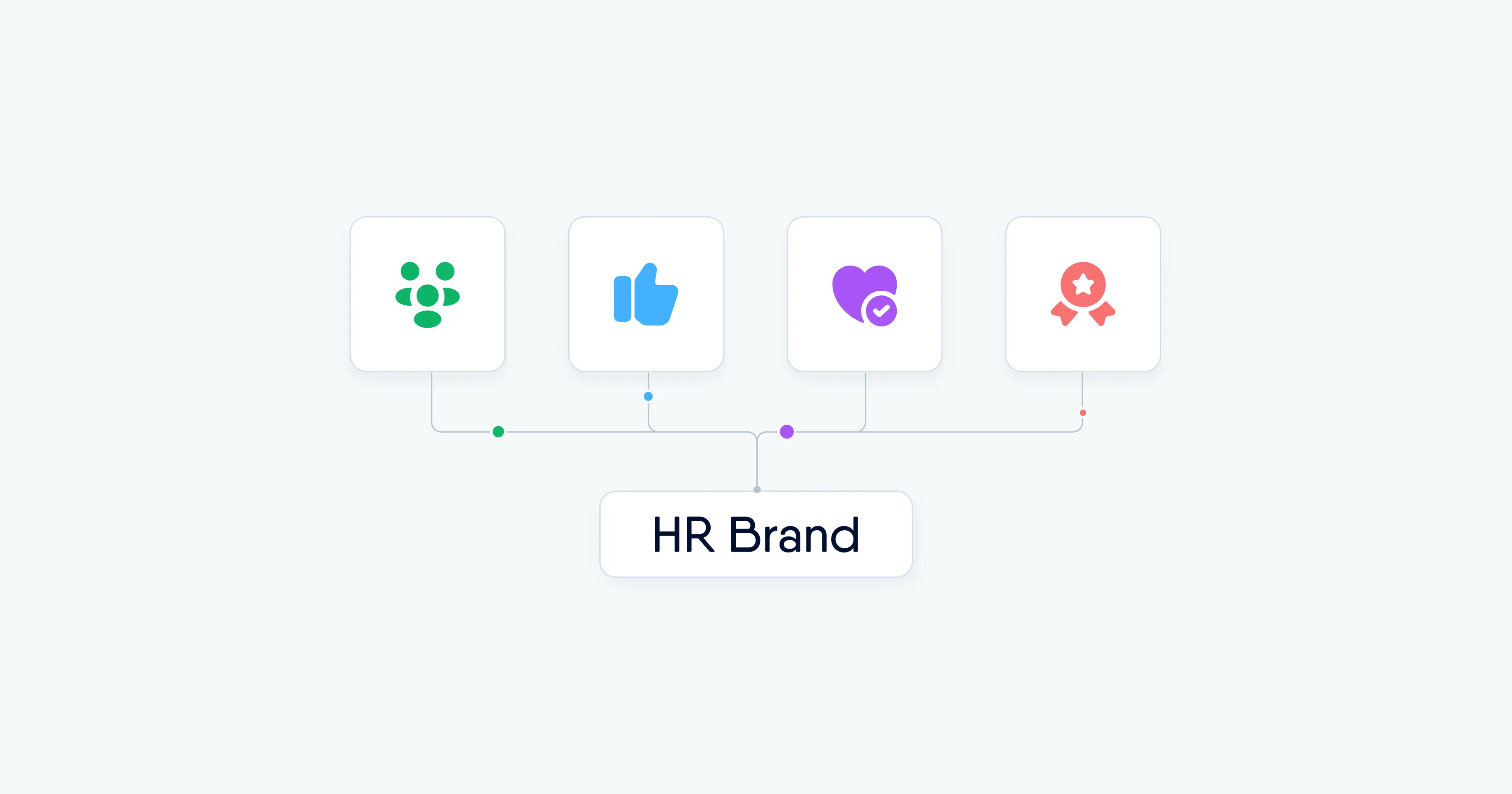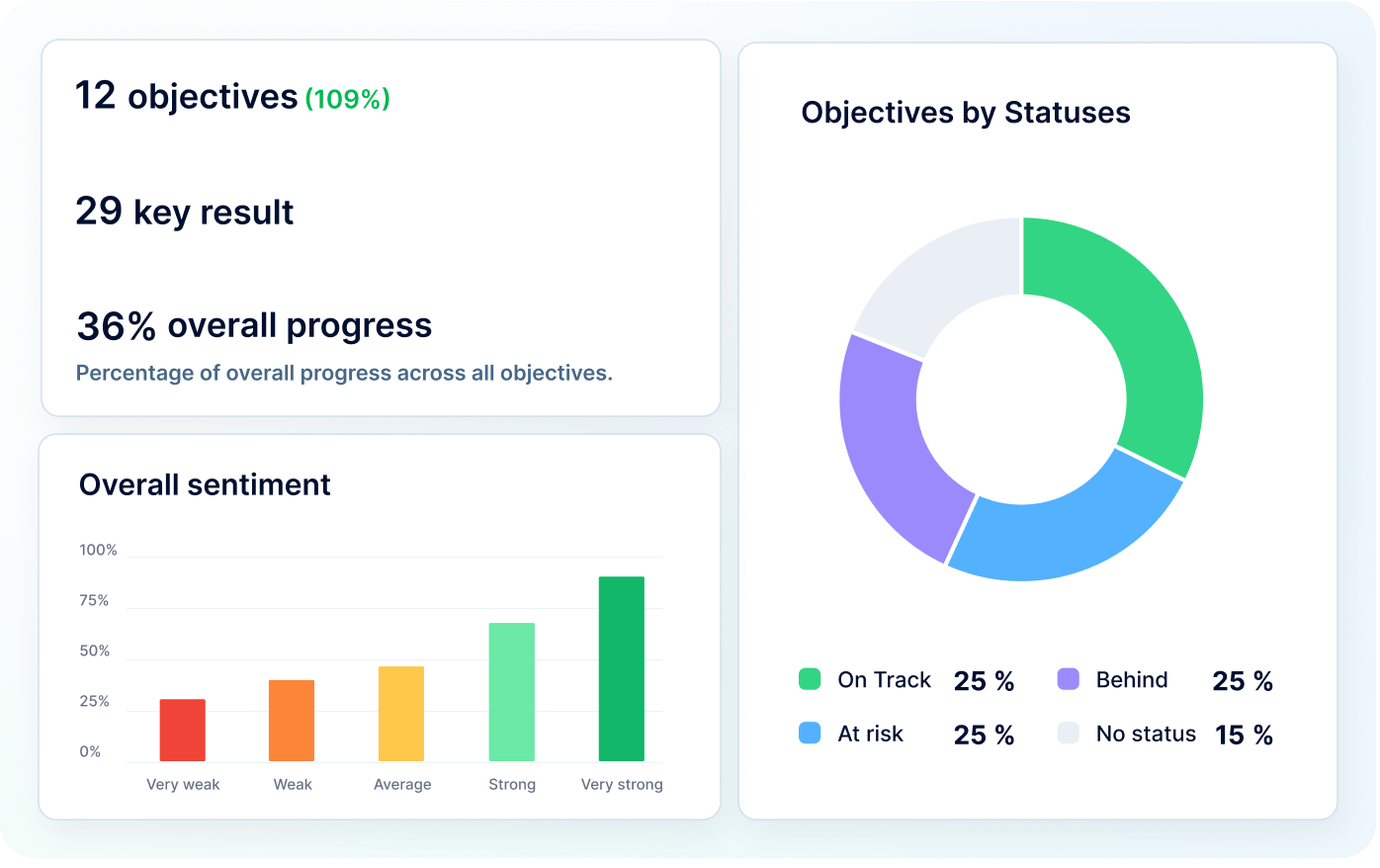
What makes up a company's HR brand, and why is it needed?
The study by CareerArc shows that 75% of candidates consider the company's HR brand even before applying for a job. This allows them to roughly assess what the staff is like, what values the company holds, what the company does, whether employees are positioned as experts, or if nothing is said about them, etc.
Let's figure out together what is included in the concept of "HR brand" so that hiring becomes easy and effective, and senior-level positions are closed within 2-3 weeks.
What is an HR brand?
HR brand – is a complex of perceptions, thoughts, associations, emotions, and value characteristics about the company in the minds of potential candidates and employees. The HR brand consists of a number of parameters and influences the evaluation of the company by potential employees.
And this is also a set of benefits (economic, psychological, professional) that a candidate will receive if they join the team. The decision about whether to apply to a company or not is based on its reputation, which is why working on the HR brand is so important.
'A brand is not a thing, product, company, or organization. Brands do not exist in the real world – they are mental constructs. A brand is best described as the sum of all a person's experiences and their perceptions of a product, company, or organization.'
James R. Gregory, from the book "Leveraging the Corporate Brand
HR brand: where to start?
Let's break down the components of an HR brand. A strong HR brand consists of the coherence between the following elements:
- Brand style (identity).
- Company mission and values.
- Social media and official website.
- Unified communication style (tone of voice).
- Employee reviews.
- Conditions for work, development, and brand loyalty.
- Corporate culture.
- Reputation
Let's examine each point in more detail.
Corporate identity (branding)
The physical components (carriers) of the HR brand include the entire set of elements of corporate identity: the company name (word, phrase), logo, palette of corporate colors, supporting corporate style original graphics, a set of phrases, sounds, and more.
Individual attributes will help identify the brand as an employer among others. Here, a comprehensive effect is at work: a short name + a clear, bright logo + a unified color scheme + 1-2 corporate fonts. If the company’s name and logo are frequently encountered in various sources, candidates will begin to recognize you among thousands of others based solely on these 2 parameters. The more coherent the elements of the corporate identity are among themselves, the higher the effectiveness and likelihood that you will be remembered.
Mission and values of the company
This is something that needs to be resolved at the stage of company creation, but for some reason, some businessmen forget about it. After all, as shown by the results of the Deloitte study, 77% of millennials consider values important when choosing a workplace. For example, if a company does not value work-life balance and considers low-quality customer service acceptable, and for the candidate this is important, they will go to competitors where the opposite situation exists.
Therefore, first think about what global mission you carry, then create a list of values based on a specific employee survey and address other issues.
Social media and official website
According to the results of the research by CareerArc, 62% of candidates visit social media channels to assess the employer brand and then make a decision on whether to submit a resume there or not. That's why choosing at least one social network solely for the HR brand in social media is an excellent decision. It's important to develop a content strategy, determine where and what audience is present, and engage in filling the pages. For example, to promote the HR brand on social media, interesting facts about employees, funny stories from the office or team buildings, company news, and job postings are shared. For example, the company pages of «1+1» on Facebook under the hashtag #LюдиІдей and SerpstatTeam on Instagram under the hashtag #serpstat_team. Additionally, for the promotion to be successful, it's important to respond quickly to mentions and resolve conflict situations.
Regarding the website, there are the following mandatory requirements — it must be:
- mobile-first (adapted for mobile devices);
- with a section about job vacancies;
- with information about the company, an explanation of the principles of work, a description of services, and clear positioning.
Another great idea is to add a separate branded landing page for job openings (by the way, this can be easily done with the help of integrations from HRM systems and without programmers), where you can outline the company's mission, values, and goals for the future, as well as provide information about the team. Ideally, it would be great to shoot a video about the team that conveys the main mood of the group. After all, while watching, viewers are inclined to want to join the guys and become part of their company.
Unified tone of voice
Tone of voice is how a company communicates across various channels: media, social networks, business correspondence, advertising messages, on the website, and in personal meetings. It is determined by two main parameters - the characteristics of the target audience and the product you are selling, and in the case of developing an employer brand, corporate culture and team values also influence this voice. Everything is important here: intonation, specific phrases and words (by which you will be recognized), tone, and sentence length.
Reviews about the employer
Employee reviews have an incredible persuasive power. The problem is that people are more likely to share negative experiences than positive impressions. The reason for a bad review might be an HR manager who, for personal reasons, did not appeal to the candidate, or a difficult test task, an unjust dismissal in the employee's opinion, even if the company actually has a friendly attitude and many positive aspects.
Therefore, it is important to build a good reputation for your business and to constantly monitor mentions of the company on review sites such as dou.ua.
It is also necessary to effectively address negativity:
- leave public, open feedback responses (both good and bad);
- avoid excuses and empty arguments;
- state only specific facts, maintain politeness, tone of voice, and engage in constructive dialogue;
- thank for valuable feedback and improve processes.
And don't forget to ask your employees with high engagement levels, which can be determined through eNPS surveys, to leave positive reviews about their workplace. Support their funny stories about work moments, from corporate events, office entertainment. These are the people who ultimately become ambassadors of the company's HR brand and encourage others to come work for them.
Conditions for work, development, and loyalty of the HR brand
The today's must-have company list includes a flexible schedule, free lunches or at least fruit, tea, coverage of educational expenses, corporate English. If at least this is not in the job description, potential candidates may not even consider your company. However, if the company offers mentoring programs, internships, opportunities for practical training, free tickets to themed events, this will motivate people who want to achieve professional success and will prefer your company.
Corporate culture of the company
According to the results of the survey Global Human Trends Trends, 82% of professionals believe that a vibrant and well-thought-out corporate culture is a potential competitive advantage. Additionally, 66% of candidates who participated in another study want to know about the company's culture before applying for a job, specifically they are interested in:
- relationships among colleagues;
- relationships between colleagues and management;
- management style;
- organizational structure.
Reputation
Potential candidates are attracted by successful companies, and success along with concrete results motivates and retains the team more than any other benefit.
How often are your news and achievements published in the media? How open is the company to sharing its cases at conferences or hosting professional meetups within its office? And what about national or global awards? Don't forget about collaborations with other companies either. It would be great if they involved joint social or charitable projects (one way to show that the brand is socially responsible), which are mentioned in major media outlets.
If you want to optimize the hiring process and retain the best professionals in the market, you must develop your company's HR brand. This will help reduce the costs of finding talented and genuinely engaged candidates, decrease employee turnover, and increase the number of those who decide to try themselves in a new position within your company rather than at a competitor. To achieve this, enhance all the parameters we have described, and become the best employer ever!
With over five years in HR tech content creation, Maria explores how technology, people, and culture shape the workplace of today. Her interests include HR, AI, IT, and personal development, and she brings a data-driven, human-centered perspective to her writing.
Get started with PeopleForce today
Automate your HR routine to create a high performance culture in your company. PeopleForce is your best HRM alternative to stay business driven but people focused.

Recent articles
How much time HR platform saves for HRs and admins
Discover how modern, all-in-one HR software simplifies complex processes, ensures compliance, and boosts efficiency to help HR teams manage growing responsibilities with ease.
3 ways small & medium-sized business can better optimize recruiting
Perhaps it’s not too surprising that hiring and retaining the right people is one of the biggest challenges facing small and medium-sized businesses.
How automation is shaping the future of HR
The ongoing global health crisis has transformed the way people work. The pandemic not only caused the massive shift to remote working.

